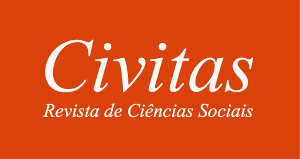Abstract:
Since the origins of the social sciences during the European eighteenth century, philosophy has maintained a problematic relationship with them, particularly with sociology. Despite the historical process of progressive structuring and differentiation of the social sciences from philosophy, the discussion is by no means definitively settled, at least from the point of view of philosophy. This article reviews the position of the sociologist Pierre Bourdieu in this regard. Against the idea according to which, for Bourdieu, both philosophy and the social sciences are capable of elaborating problems and concepts, differing only by their methods and maintaining a fruitful theoretical exchange with each other, a processual reading of his work, supported by recent historiographical studies, reveal a more radical position according to which the social sciences have developed the autonomous capacity to elaborate authentic scientific knowledge. Thus, Bourdieu's ambiguity in relation to philosophy would be nothing more than the superficial appearance of a permanent rupture process, which the development of his sociology required.
Keywords:
Philosophy; Autonomy; Social Sciences; Social history; Reflexivity
